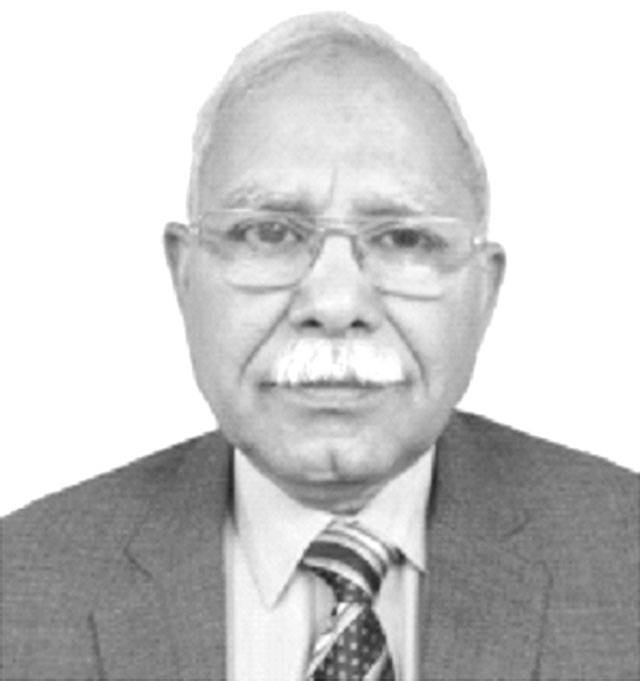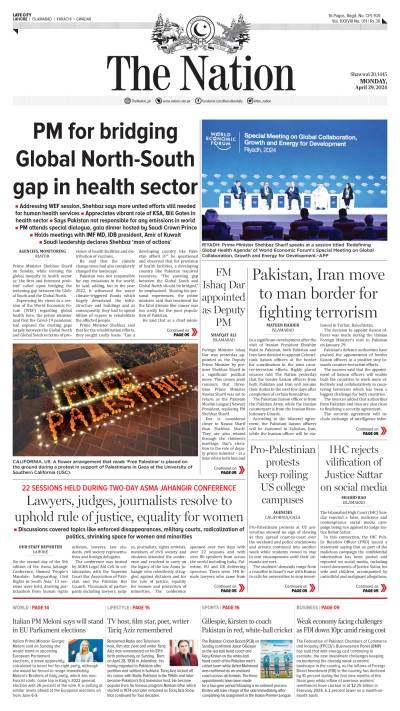According to the World Justice Project’s Rule of Law Index report for the year 2022, Pakistan’s overall rule of law score decreased by less than 1% in this year’s Index. It ranks 129 out of 140 countries worldwide. That, surely, is not a flattering position. It is actually a matter of shame that a country which prides itself as Islamic Republic of Pakistan has a standard and quality of justice that is so low.
Perhaps it would be pertinent to mentions some of the judicial decisions that not only have had a profound debilitating impact on the dispensation of justice, but also the political landscape of the country. Unfortunately such instances are not galore only in the lower courts. Even the Supreme Court and High Courts have given verdicts that make a mockery of justice and have been instrumental to country’s drift to the edge of a precipice.
The doctrine of necessity by Justice Muneer, the verdict in Bhutto case and the dismissal of Nawaz Sharif in the Panama case which according to General Aslam Beg was a conspiracy, are glaring examples of miscarriage of justice. Judicial activism since the restoration of judiciary headed by Iftikhar Muhammad Chaudhry after the movement by lawyers has further aggravated the situation. His successors, Justice Saqib Nisar and Justice Asif Khosa, made excessive use of suo motu powers and interfered in every conceivable economic and political issue that did not require their involvement.
That tradition continued under the stewardship of Chief Justice Bandial who has allegedly shown a liking towards a particularly party and its leader, most of which could be seen through the bails granted and the verdicts issued to settle the political issues.
The verdicts of the SC, particularly the opinion rendered by it on Article 63-A, restoration of Pervez Elahi’s government in Punjab and the election in the province are instrumental to the burgeoning political crisis the country is facing at the moment. Not only that, but the judges of the SC also trespassed into the domain of the parliament by staying a law which was not even promulgated. The verdict on the formation of judicial commission for probing the issue of audio leaks could allude to a bias of the CJ. In fact he should not have presided over the issue because it pertained to his mother in law also and clearly represented clash of interests. The CJ and the like-minded judges who were invariably made members of benches dealing with cases pertaining to PTI and Imran Khan repeatedly made mockery of justice. So much so that when a bench was formed the people already knew the verdict. That predictability was not without reason.
All the aforementioned verdicts reflected will of the judges rather than adherence to the constitution and law. This throws us back to the medieval ages when the concepts of democracy, sovereignty of people and government of the people, by the people, for the people were alien to the world. There were no constitutions to regulate their powers. Law was what the kings would pronounce while adjudicating on issues before them and there was absolutely no check on their indiscretions.
However, with the advent of the modern era, the emergence of nation states and acceptance of people’s right to choose their own rulers, the states started adopting constitutions that reflected the will of the people as sovereigns. These constitutions invariably delineate an arrangement for distribution of powers between the pillars of the state known as the trichotomy of powers.
The judiciary and its members, while playing their designated role, are under obligation to give their verdicts in conformity with the constitution and law. Regrettably that did not happen in the land of the pure. The result was that the judiciary and parliament were at loggers-head. The parliament rightly resented the conduct of the SC judges. Parliament is the mother of all state institutions including judiciary. The judiciary cannot dictate to the parliament. By committing these indiscretions, the judges have nudged the country back to medieval ages. They have also pitched the judiciary against the executive as well which can have disastrous consequences for the country. They must remember that they derive their authority and powers from the constitution and cannot impose their own will in their verdicts.
The outcome of the foregoing indiscretions committed by the judiciary, the most sanctimonious institution of the state which deserves to be held in the highest esteem, is that it has lowered its own prestige in the eyes of the people whose faith and trust in it is also at the lowest ebb.
History will never forgive those who have played with the destiny of the nation. I am constrained to narrate an incident in this regard with a feeling of utmost hurt that happened on Monday. After delivering his speech at a function held to mark the beginning of the new judicial year, CJ Atta Bandial mingled with the crowd and even exchanged greetings with some of the journalists present at the function. He walked up to Qayyum Siddiqui, a renowned reporter of the Supreme Court, shook hands with him and asked for a photograph with him. But the reporter flatly refused and when the CJ asked him the reason he reportedly said, “You practiced factionalism and I also belong to a faction.” That was very insulting for a chief judge of the land. Nevertheless this unfortunate happening is a lesson for those occupying seats at the highest court to refrain from being partisan or playing politics which is none of their business.
Monday, April 29, 2024
An unfortunate happening

The writer is a freelance columnist. He can be reached at ashpak10@gmail.com.
Pakistan Saudi Arabia's priority for investment, says Saudi minister
9:24 PM | April 29, 2024
President confers Nishan-i-Imitaz (M) upon Commander Turkish Land Forces
9:18 PM | April 29, 2024
Interior Minister Mohsin Naqvi suspends Lahore passport office officers over mess
9:12 PM | April 29, 2024
CM Maryam inaugurates daycare center at Children's Hospital
9:09 PM | April 29, 2024
Four jailed for life in MQM leader Ali Raza Abidi's murder case
9:08 PM | April 29, 2024
Political Tightropes
April 27, 2024
Wave of Revolution
April 27, 2024
Brave Peacekeepers
April 27, 2024
Economic Challenges
April 26, 2024
No Compromise
April 26, 2024
Revolutionising rural learning
April 29, 2024
Information failure
April 29, 2024
Border security
April 28, 2024
Cinema – a Catalyst for Change
April 28, 2024
Korangi’s challenge
April 27, 2024
ePaper - Nawaiwaqt
Advertisement
Nawaiwaqt Group | Copyright © 2024





